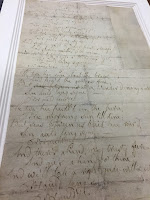When I was a kid, I dreamed of visiting the Epcot Center and seeing Michael Jackson’s show.
On the way to Canada, I stopped in Orlando overnight and took a bus to several Disney parks in the morning. It was surprisingly chilly in the morning and evening, but coming from Sweden, I was prepared. Sadly, as with most childhood memories, DisneyWorld didn’t meet the hype, though its hotel, guest relations, and airport transfer service (Magical Express) were fantastic.
The different parks—spread over miles of land and asphalt highways—required a makeover. I tried visiting the gift shops at each park, but most of them were behind the ticket gates, an odd business decision. I liked the artistic touches, such as the cruise line bus painted like a ship, but after Tokyo’s DisneySea, I had high expectations for Disney’s flagship park.
Unfortunately, like much of America in 2019, marketing (aka propaganda) exceeded reality, and infrastructure looked neglected. I strongly suspected I should have visited one of Disney’s newer resorts elsewhere. I had to wonder: will America realize it needs to catch up to the rest of the world, or will it continue to sail on its remarkable post-WWII (1945 to 1991) winds? In the alternative, am I just living the cliché that once you’ve left home, you can’t return because your perspective has changed irrevocably?
Bonus: some practical advice: 1) do not bring any bags to the parks. There are separate security lines for visitors depending on their belongings, and the ones without bags or backpacks sailed through; 2) the cheapest hotel appears to be All-Star Sports, which has a 24/7 McDonald’s nearby, an opportunity to save even more money by eating meals offsite; and 3) Orlando’s airport is busier and less efficient than Ft. Lauderdale’s. My TSA check took about 20 minutes—after the 10 minutes wait in line to security.
On the way to Canada, I stopped in Orlando overnight and took a bus to several Disney parks in the morning. It was surprisingly chilly in the morning and evening, but coming from Sweden, I was prepared. Sadly, as with most childhood memories, DisneyWorld didn’t meet the hype, though its hotel, guest relations, and airport transfer service (Magical Express) were fantastic.
The different parks—spread over miles of land and asphalt highways—required a makeover. I tried visiting the gift shops at each park, but most of them were behind the ticket gates, an odd business decision. I liked the artistic touches, such as the cruise line bus painted like a ship, but after Tokyo’s DisneySea, I had high expectations for Disney’s flagship park.
Unfortunately, like much of America in 2019, marketing (aka propaganda) exceeded reality, and infrastructure looked neglected. I strongly suspected I should have visited one of Disney’s newer resorts elsewhere. I had to wonder: will America realize it needs to catch up to the rest of the world, or will it continue to sail on its remarkable post-WWII (1945 to 1991) winds? In the alternative, am I just living the cliché that once you’ve left home, you can’t return because your perspective has changed irrevocably?
Bonus: some practical advice: 1) do not bring any bags to the parks. There are separate security lines for visitors depending on their belongings, and the ones without bags or backpacks sailed through; 2) the cheapest hotel appears to be All-Star Sports, which has a 24/7 McDonald’s nearby, an opportunity to save even more money by eating meals offsite; and 3) Orlando’s airport is busier and less efficient than Ft. Lauderdale’s. My TSA check took about 20 minutes—after the 10 minutes wait in line to security.
 |
| One of the All Star Sports complexes |


































